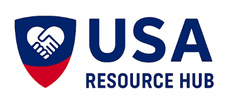Security deposits are one of the biggest upfront barriers to securing housing. Even when rent is affordable, the added cost of first month’s rent, last month’s rent, and a deposit can push a unit out of reach. For low-income renters, this hurdle often leads to housing delays, unstable living arrangements, or missed opportunities. Fortunately, there are local programs designed to cover or reduce deposit costs for eligible applicants.
Why Security Deposits Matter
Landlords use security deposits to protect against unpaid rent and property damage. The amount is typically equal to one month’s rent, but in competitive markets or for applicants with limited credit history, it can be higher. Without deposit support, renters may be forced to delay moving, borrow from high-interest lenders, or settle for substandard housing.
Deposit assistance programs reduce this pressure by covering part or all of the required amount. Some offer direct payments to landlords, while others provide guarantees or low-interest loans.
Types of Deposit Assistance Programs
Deposit help comes in several forms, depending on your location and eligibility:
- Local government programs – City or county housing departments often run emergency rental assistance programs that include deposit coverage. These are usually funded through federal grants or housing trust funds.
- Community action agencies – These nonprofits manage housing support services and may offer deposit assistance as part of broader rental aid.
- Faith-based organizations – Churches and religious groups sometimes provide one-time financial help for housing transitions, including deposits.
- Charitable foundations – Some local charities offer grants or zero-interest loans for housing costs. These may be limited to specific populations, such as veterans, seniors, or domestic violence survivors.
- State-level housing programs – In some states, housing finance agencies offer deposit support through voucher programs or transitional housing initiatives.
Eligibility Requirements
Each program sets its own rules, but common requirements include:
- Proof of income below a certain threshold
- Documentation of housing need (eviction notice, homelessness, unsafe living conditions)
- Identification and Social Security numbers
- Lease agreement or landlord letter confirming deposit amount
Some programs prioritize applicants with children, disabilities, or urgent relocation needs. Others may require participation in financial counseling or case management.
If you’re unsure whether you qualify, contact the program directly. Many agencies offer pre-screening over the phone or online.
How to Apply
Start by searching for deposit assistance in your city or county. Use terms like “rental assistance,” “housing support,” or “deposit help” along with your zip code. You can also check:
- Local housing authority websites
- 211.org for regional service directories
- Community action agency listings
- United Way or Salvation Army branches
Once you find a program, follow the application instructions carefully. Most require:
- Completed application form
- Proof of income and identity
- Lease or rental agreement
- Landlord contact information
Submit all documents at once to avoid delays. If the program offers in-person appointments, bring physical copies and ask for a receipt or confirmation.
What to Expect After Applying
Processing times vary. Some programs respond within days, while others may take weeks depending on funding and demand. If approved, the agency will usually send the deposit directly to the landlord. You may be asked to sign a release form or agreement outlining repayment terms if the assistance is structured as a loan.
If denied, ask for a written explanation and whether you can reapply or appeal. Some programs offer alternative support, such as moving cost assistance or referrals to other agencies.
Tips for Faster Approval
- Apply early, especially if you know your move-in date
- Have all documents ready before starting the application
- Follow up regularly without overwhelming the agency
- Ask if the program offers priority processing for urgent cases
- Keep communication clear and professional with both the agency and landlord
If you’re working with a case manager or housing navigator, share updates and ask for help coordinating paperwork. Many agencies work faster when they know a support professional is involved.
Using Deposit Help Strategically
Security deposit help is not just about covering costs. It’s about unlocking housing options that would otherwise be inaccessible. With support, you can consider safer neighborhoods, better school districts, or units closer to work and transit.
Some renters use deposit assistance to leave overcrowded or unsafe living situations. Others use it to exit shelters or transitional housing. In all cases, the goal is stable, long-term housing and not just a temporary fix.
Security deposits shouldn’t be a barrier to safe housing. If you’re struggling to cover upfront costs, local programs can help. From government grants to nonprofit support, there are options available in most regions. Use clear documentation, apply early, and follow through with every step. With the right approach, you can secure housing without draining your savings or taking on risky debt.


Leave a Reply